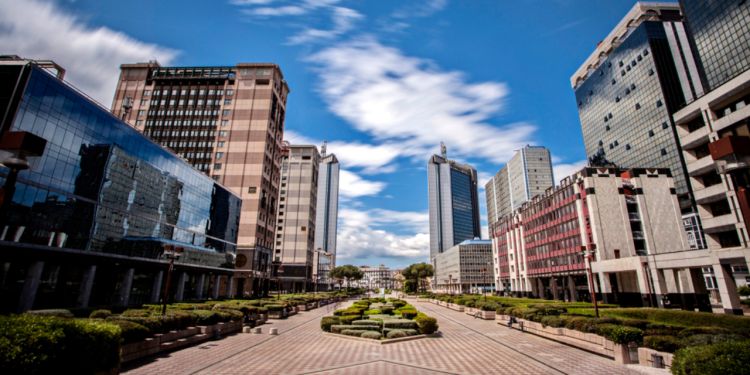Working in Italy

Unless you are retired or studying in Italy, you are probably going to want to look for a job to support yourself. Our guide to working in Italy includes all the essential information you need to know before making your move, including what documents you need to work, popular work for expats, and what benefits and entitlements you can expect once you find work in Italy.
The Italian labour market
Before you decide to pack up your life to move to Italy, it is important that you understand the economic climate and the labour market you will be entering. While Italy has the eighth largest economy in the world, unemployment is a still a serious issue for the country, with 9.8% of the population unemployed, and a staggering 29.3% of young people unemployed (January 2020 figures from ISTATS). That means competition is fierce.
The Italian economy is predominantly service-based, with the tertiary sector making up 75% of the country's GDP. Key industries include engineering, finance, technology, food production, and fashion, although tourism plays a key role too. Here is more information on the Italian labour market.
Additionally, most sectors and industries are subject to national quotas. It is therefore recommended that you seek employment before leaving your country of residence.
What you will need to find work in Italy
If you a citizen of the EU, you will not need to apply for a Permesso di Soggiorno per Lavoro (special work visa).
If you are from outside of the EU, you will need to apply for this work visa at the Ministry of Foreign Affairs at your nearest Italian Embassy or Consulate. This can be a lengthy process and can take anywhere between a couple of months to a year to process, so ensure that you leave plenty of time before your departure. You can find out more about acquiring a work visa using our guide.
Important:
Citizens of the EU, EEA, and Schengen Area must apply for a residence permit at their local municipality if they plan to stay in Italy longer than three months. Non-EU, EEA, and Schengen members must register for residency within eight days.
Good to know:
The maximum duration of a fixed-term employment contract is 36 months, but the contract can be renewed up to five times.
Under the recent Job Acts reform, fixed-term contract employees and permanent employees must be treated equally. Part-time workers cannot be discriminated against.
Note that there are certain incentives offered to companies that hire categories of employees including young people aged between 15 and 29, disadvantaged persons, and long-term unemployed people over the age of 50.
Working conditions in Italy
Generally, Italians enjoy a healthy work/life balance. Once you find work, you will be insured under the Italian social security legislation and thus entitled to employee rights like holiday, sick leave, maternity and paternity pay, and severance pay or end of contract compensation, although self-employed workers enjoy almost none of these rights.
Your company should register you for social insurance, but you can also do this yourself at your own local Azienda Sanitaria. You will need to bring your passport, your codice fiscale (tax code), proof of address/residence, your civil status (which will be issued to you when you apply for residency), and a request for choosing a doctor.
Pay
There is no minimum wage in Italy. According to legislation, employees are entitled to receive a salary which corresponds to their role, and it should provide sufficient guarantee of a decent lifestyle. However, salaries are significantly lower than comparable Western European counterparts, with an average wage of 1,400 euros per month in Rome.
Work hours
There is no cap on working hours, but the average working week is 40 hours and overtime cannot exceed 250 hours per year. Business hours in Italy are generally between 8 am and 1 pm, and 3 pm and 8 pm, depending on business and industry. Many businesses in the service sector also close on Monday.
Income Tax
There are five tax brackets in Italy. The first bracket of 27%, applies to people whose income does not exceed 28,000 euros per year. The last tranche of 43% applies to income over 75,000 euros per year.
Holiday
Employees are entitled to at least four weeks paid annual leave, as well as 11 public holiday days.
Maternity and Paternity leave
Mothers are exempt from service for the last two months of their pregnancy, and the first three months after childbirth, although they can decide to serve an additional month during pregnancy and take an additional month after childbirth. 80% of the mother's salary is paid for by the INPS (Istituto nazionale della previdenza social) and 20% of her salary is paid for by her employer during this time. After this, mothers are entitled to an additional six months leave, which entitles her to maintain her employment position and 30% of her salary from INPS. Women cannot be dismissed until the child is one year of age without just cause.
Paternity leave is compulsory in Italy and lasts 5 days and must be taken within 5 months after the birth. Maternity provisions are applicable to the father only if the mother passed away, if she has severe disabilities, if she has abandoned the child, or if she has entrusted the child in the father's care.
Parental leave
Mothers and fathers can take parental leave for up to six months each until the child is 12 years old, and single parents are entitled to ten months leave. During this period, employees will receive an allowance of 30% of their salary for six months.
Severance pay
In circumstances where a contract is terminated, employees are entitled to severance pay (the amount is equal to the sum of each annual salary divided by 13.5), pro-rata supplementary monthly payments, and payment in-lieu of holiday not taken.
Sick pay
Employees are entitled to sick leave and have the right to maintain their job during this absence. From the 4th to 20th day of illness, employees are entitled to 50% basic remuneration, and from the 21st day, they are entitled to 66% remuneration. You must provide a certificate of the state of illness, which has been issued by a licensed doctor.
Useful links:









